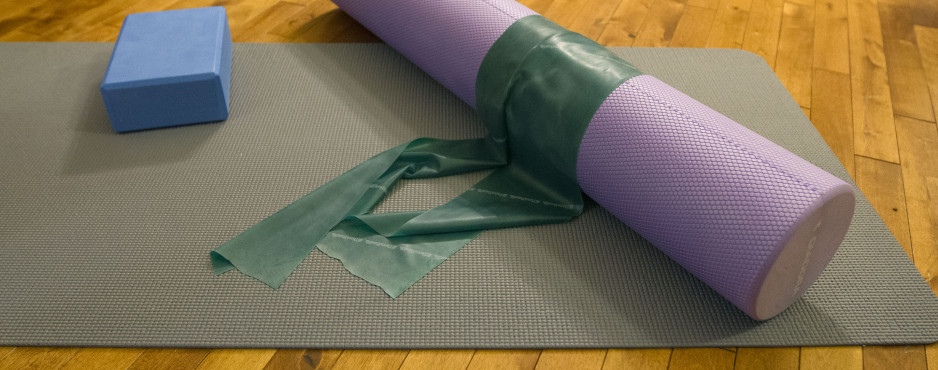When setting goals and taking on new challenges in life, we all start out with the best intentions. But after you begin the training, or studying or planning required to reach your goal, it always seems that the process of getting there takes longer than we thought it would.
While I believe any goal worth having is one that requires a lot of time and effort, time can often be the biggest obstacle to success. As I touched on in my first post of my 30-day challenge – T-30 Days – a lack of time over the last seven months meant this blog suffered more than I wanted it to. Time forces us to prioritize and sometimes it forces us to change our expectations.
As the UofC Marathon Training Program takes a holistic approach to marathon training, we touched on how to balance our life with our training during our lecture series in May. Ashley Fox led the session that helped us explore what we were saying NO to in our life when we say YES to training for a marathon. Back in May I wrote that by saying YES to getting my run in I might be saying NO to helping out at home. By saying YES to preparing healthy meals I might be saying NO to down time or spending time with my friends.
If I was to rewrite that list now I don’t think it would be hugely different, but it would certainly be longer.
When starting to train for a marathon, or any other athletic endeavour, the time you spend actually running or swimming or biking, is only just the start of your training commitment.
When I started training I looked at our schedule and saw that we had scheduled runs or workouts four times a week and I knew that was something I would have no problem fitting into my days. It’s the other, unexpected things that eat up the rest of your time and make you wish there were more hours in a day.
So here are a few of the less obvious things you’ll have to fit into your schedule if you plan on training for a marathon:
- Shopping – If you are like me and have impulsively decided start training for a marathon after doing nothing more than hot yoga for the past four years, you might be a little short on workout wear. While I tried to be frugal when purchasing running gear, after a while you get tired of washing the same two shirts and one pair of pants every two days. Unless you were already an active athlete there will be quite a few things you’ll need to buy over time. A running watch, a water bottle, clothes, special fuel for long runs … the list goes on. Hitting up the specialty running stores every few weeks takes TIME.
- Sleep – I am a night owl. I am quite productive between the hours of 12 a.m. and 2 a.m. which is fine if you’re a 20-year-old journalist listening to the police scanner all night, NOT if you are training for a marathon. Making myself to go sleep at 10, or even 11, cut a few hours out of my days. Although this is probably for the best.
- Laundry – I sort of touched on this above, but when you start working out 4-5 times a week, that adds a lot of laundry to my pile, no matter how many times I re-wear stinky clothes. ‘Nuff said.
- Meal Planning – There isn’t much point in pounding the pavement every day without at least attempting to make meals that are going to make you stronger. I certainly don’t eat perfect but planning a few extra healthy lunches or dinners a week is more time consuming than cookin’ up a pack of KD. Although I do love my KD.
- Stretching, rolling, physio etc. – When the hours and kilometres of running begin to add up, coming home and going straight to bed isn’t always an option. Tight IT bands, sore knees or muscle pain often require tending to. Using a foam roller or doing extra physio work at night when necessary can make a huge difference in your training but it isn’t exactly quick work.
- Showers/Ice baths – This may not apply to everyone but I think having to shower multiple times a day, before work, then after a run, is such a drag. Working out makes you sweaty and then you have to shower and when you have long hair that takes forever. After the really long runs I also usually force myself into an ice bath before my shower. Miserable? Yes! Worth it for lessening my joint and muscle pain? Unfortunately, also yes!
- Logging your progress – Some people keep journals, some people keep log books, others take digital notes, I have this blog to track my progress through the program. As you train it’s a good idea to take note of your improvements and your setbacks so you can learn from them.
- Social events – OK this is not a bad thing but when you run with an awesome group like mine that has coffee together after our Saturday runs and plans pub nights and other fun activities, you’ll want to join in! So make sure you take a little time to have some fun along the way 🙂
If you are thinking of training for a marathon I hope this helps you, not scares you off. With enough support from team members, family and friends you can do it. But it always helps to have a healthy understanding of what you are getting yourself into. Good luck!
P.S. Today was one of those days where the hours got ahead of me. Which is why I am posting this at 10:30 p.m. Just under the wire Justina, just under the wire.

